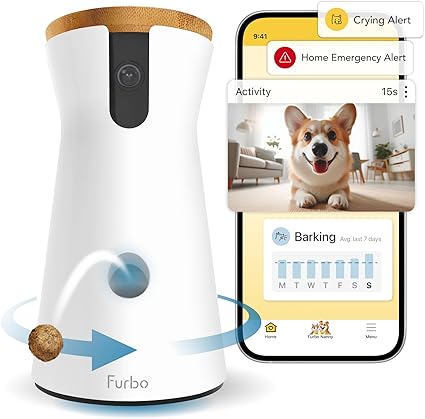Can dogs eat shrimp? Many pet owners often ask this question. Adding seafood to a dog’s diet is an interesting choice for some. Shrimp is low in calories but high in protein, which could be good for dogs. But, it’s important to know the good and bad about giving shrimp to your dog. We’ll look into how feeding shrimp to your dog can affect their health.
A playful scene featuring a curious dog exploring a beach where shrimp are scattered on the sand, with vibrant ocean waves in the background and seagulls flying overhead, capturing a sense of wonder and discovery.
Table of Contents
Key Takeaways
- The question of can dogs eat shrimp is becoming more prevalent among pet owners.
- Shrimp can be a source of protein and nutrients for dogs.
- Understanding the risks involved is crucial before introducing shrimp to a dog’s diet.
- Proper preparation and cooking methods are essential to ensure safety.
- Monitoring for allergic reactions is vital when introducing any new food.
- Find out which foods are safe for your dog! Click here to protect your furry friend’s health: Link to the article.
Understanding Canine Dietary Needs
For a happy and healthy dog, knowing their diet is key. It’s essential to grasp their nutritional needs. Dogs need certain nutrients that keep them healthy and full of energy.
Essential Nutrients for Dogs
Dogs need different nutrients to stay healthy. Proteins help with muscle repair and are the body’s building blocks. Fats give energy and keep the skin and coat healthy. Carbohydrates give more energy and help with digestion.
Vitamins and minerals are important for the immune system and overall health. Including these nutrients in a dog’s diet is crucial for their well-being.
Find out which foods are safe for your dog! Click here to protect your furry friend’s health: Link to the article.
Common Food Restrictions for Dogs
Not all foods are good for dogs. Some dogs have food allergies or can’t eat certain things. Foods like chocolate and grapes are toxic to dogs and should be avoided.
Knowing what foods are off-limits helps pet owners choose the right food for their dogs. This ensures their pets stay healthy.
A vibrant scene depicting a healthy dog surrounded by various colorful foods, including fresh vegetables, fruits, and a small dish of shrimp, highlighting a balanced canine diet. The background features a sunny garden with playful elements like a water bowl and toys, emphasizing nourishment and joy in a dog’s life.
Can Dogs Eat Shrimp?
Adding shrimp to a dog’s diet can be good or bad. Pet owners need to think about it carefully. They can determine whether shrimp is a suitable treat for their dogs.
Health Benefits of Shrimp for Dogs
Shrimp can be good for dogs. It’s full of protein but not too much fat. This makes it great for keeping muscles strong and energy up.
Shrimp also has omega-3 fatty acids. These are good for the heart and make the skin and fur look better. Additionally, it contains vitamin B12 and iodine, both essential for maintaining good health.
Potential Risks of Feeding Shrimp to Dogs
But, shrimp can also be risky for dogs. Some dogs might have allergic reactions to it. Owners should be careful when giving it to their pets.
There’s also a risk of choking on the shells and tails. And shrimp has cholesterol, which could be bad for dogs with health issues. It’s important to give shrimp in small amounts and watch how your dog reacts.
Safe Tips for Preparing Shrimp for Your Dog
When thinking about how to prepare shrimp for dogs, safety and nutrition are key.It’s crucial to use the correct cooking techniques. This ensures the shrimp is safe and still full of nutrients. The aim is to make a simple, safe shrimp dish for your pet.
Find out which foods are safe for your dog! Click here to protect your furry friend’s health: Link to the article.
Cooking Methods That Are Safe
Safe ways to cook shrimp for dogs include boiling or steaming. These methods cook the shrimp well without using bad fats or oils. Always remove the shells and tails before serving. This makes the shrimp easy for pets to eat and digest.
Seasoning and Additives to Avoid
Some seasonings and additives for human food can be harmful to dogs. Garlic, onion, and too much salt are examples. To keep your dog safe, keep shrimp preparation simple. Serve it plain to keep its natural taste and protect your dog’s health.
Alternatives to Shrimp for Dogs
Looking for shrimp alternatives for dogs? There are many safe and nutritious fish options. Salmon is a top choice, full of omega-3 fatty acids that make a dog’s coat shiny and skin healthy. Sardines are also great, small and packed with nutrients that dogs love.
Whitefish like cod or haddock is lean and easy on dogs with sensitivities. Adding these to your dog’s diet can make their meals more interesting and nutritious. Always add new foods slowly to prevent stomach upset.
It’s important to talk to a vet before changing your dog’s diet.Each dog is unique and may respond to food differently. A vet can give advice that fits your dog’s specific health needs, helping them stay healthy and happy.
How Often Can Dogs Eat Shrimp?
Feeding shrimp to dogs should be done with care. It’s important to know the right amount for their health. The amount depends on your dog’s size and weight.
Find out which foods are safe for your dog! Click here to protect your furry friend’s health: Link to the article.
Recommended Serving Sizes
The amount of shrimp you give your dog depends on its size. Big dogs can have a few pieces, while small dogs might just get one or two. This helps prevent them from eating too much.
Always take off the shell and prepare the shrimp simply. Avoid any oils or seasonings that could be bad for your dog.
Frequency of Serving
Give shrimp to your dog as an occasional treat, not every day. This way, you avoid health risks and let them enjoy a tasty snack. Try to give shrimp only on special occasions to keep their diet balanced.
Find out which foods are safe for your dog! Click here to protect your furry friend’s health: Link to the article.
Monitoring Your Dog for Allergic Reactions
When you add shrimp to your dog’s diet, it’s key to watch for allergies. Dogs can have different reactions to shrimp, from mild to severe. Spotting early signs of allergies is crucial for quick action.
Signs of Allergies in Dogs
Look out for skin issues, constant itching, and stomach problems if your dog is allergic to shrimp. They might act differently too. Watch for any signs of discomfort that could mean an allergy. Spotting these early helps manage your dog’s health better.
If Your Dog Has an Allergic Reaction: What to Do
If your dog shows allergy signs after eating shrimp, act fast. Stop giving them shrimp right away. Consult your veterinarian for guidance on the next steps. Quick action is important for dealing with allergic reactions to shrimp and keeping your dog healthy.
Dietary Supplements for Dogs
Adding dietary supplements to a dog’s diet can boost their health and wellness. Dogs may need special supplements for their health. These supplements give them important nutrients not found in their regular food.
Find out which foods are safe for your dog! Click here to protect your furry friend’s health: Link to the article.
Omega-3 Supplements
Omega-3 is key for a dog’s skin, reducing inflammation, and helping their brain work well. It’s great for dogs with skin or joint problems, making them more comfortable and mobile. Adding omega-3 supplements can make your dog healthier and live longer.
Other Beneficial Supplements
There are additional supplements available for dogs, such as glucosamine for joint health and probiotics for digestive support. These help keep the gut healthy, improve nutrient use, and keep joints flexible. Pet owners should talk to a vet to pick the best supplements for their dog’s needs.
Safe Seafood Choices for Dogs
Exploring seafood for dogs opens up many nutritious options, mainly fish. Fish is packed with omega-3 fatty acids. These are great for a dog’s heart and coat. It also has high-quality protein and vitamins, making it a top choice for diets.
Benefits of Fish for Dogs
Adding fish to a dog’s diet brings big health perks. Omega-3 fatty acids in fish help with skin and joint health. They also boost brain function, especially in older dogs. This makes fish a key part of a dog’s diet.
Types of Fish Considered Safe
Choosing safe fish for dogs is key for their health. Salmon, trout, and haddock are great picks. They’re nutritious and have low mercury levels, making them ideal for dogs.Always cook the fish well and remove bones to keep it safe and nutritious. Adding these safe fish to your dog’s meals can make their diet more varied and nutritious.
Find out which foods are safe for your dog! Click here to protect your furry friend’s health: Link to the article.
Conclusion
Many pet owners ask whether dogs can eat shrimp. Shrimp can be good for dogs, but we must be careful. It’s important to think about how much and how to prepare it for them.
When looking at what to feed dogs, we must consider their health. Shrimp might be good for them, but it could also cause allergies or stomach problems. So, we need to be careful.
Feeding your dog shrimp can be a fun treat. But, it’s key to know what’s best for your pet. Always consult with a veterinarian before introducing new foods. This way, you can make sure your pet stays healthy and happy.
FAQ:Can Dogs Eat Shrimp?
Can dogs eat shrimp?
Yes, dogs can eat shrimp in moderation. It can be a good source of protein and nutrients. But, it must be prepared properly.
What are the health benefits of feeding shrimp to dogs?
Shrimp are packed with protein, low in fat, and have omega-3 fatty acids. These are excellent for heart health and maintaining a shiny coat.
Are there any potential risks involved in feeding shrimp to dogs?
Yes, there are risks like allergic reactions, choking from shells, and high cholesterol concerns. Always introduce shrimp slowly.
How should I prepare shrimp for my dog?
Make sure shrimp are fully cooked without shells or tails. Boiling or steaming are safe methods. Avoid harmful seasonings.
What seasonings should I avoid when preparing shrimp for my dog?
Don’t use seasonings like garlic, onion, or too much salt. They can be toxic to dogs.
What are some alternatives to shrimp that are safe for dogs?
Safe alternatives include salmon, sardines, and whitefish. They offer similar health benefits.



